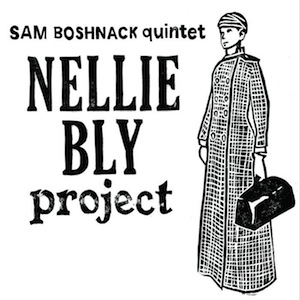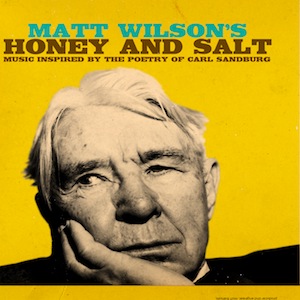Label/Year: pfMentum, 2017
Lineup – Ethan Sherman: guitar; Chris Rolontz: bass; Christian Euman: drums.
Ethan Sherman is an L.A.-based guitarist and composer whose openness to different styles and facility of approach make him an interesting voice in the modern jazz world. His debut album as a leader, Building Blocks, was recorded in trio with Chris Rolontz on bass and Christian Euman on drums.
The translucent opacity of Sherman’s music punches like a matador in the introductory section of “Jungle Gym”, a rubato incursion that nods to Ben Monder and surprises through immersive, robust triads. Afterward, this same piece is recuperated, shortened to half, and accelerated in pace (called the fast version). Despite the opening tune’s premise, it was the pop/rock feast “Keltner”, written by Sherman with the drummer Jim Keltner in mind, that immediately gained focus through the mystery drawn by on-spot guitar chords coated with occasional powerful distortion and corroborated by a languid yet confident groove that guides and enthralls.
The easy melody presented in the light-hearted “Dangling” dances freely over the undeviating foundation formed by Euman’s riding cymbal strokes and Rolontz’s danceable pulsation from below. After improvising, the bassist continues with a discerning walking bass that leads us to Steve Swallow’s old happy creations.
The most beautiful piece is also the most reserved. Entitled “Norway”, this airy, far-sighted, Motian-esque composition paints autumnal landscapes with a mighty force that implodes, maintaining an unaltered surface that anchors in “Pretty Polly”, a traditional folk song reimagined to hinge distorted guitar dissonances and loose, often atmospheric bass-drums liaison.
Strongly influenced by the blues, “Motivation” takes the shape of an accessible song whose rustic, soulful touches get it closer to a ballad. It contrasts with "Positive Space”, a fruitful blend of dreamy folk and dissimulated funk where Sherman uses his peculiar vocabulary drawn from jazz and rock to speak frankly, and “Snowshoe”, a delicate pop mantra initially escorted by minimal mallet-driven drumming, bowed bass, and circular chord progressions embellished with harmonics. After Rolontz’s bass solo, the tune’s texture core is intensified but never altered.
This is an auspicious debut from a talented young guitarist that shows strong compositional skills and potential to do even greater things in the future.
Grade A-
Favorite Tracks:
02 - Keltner ► 04 - Norway ► 08 - Positive Space








































